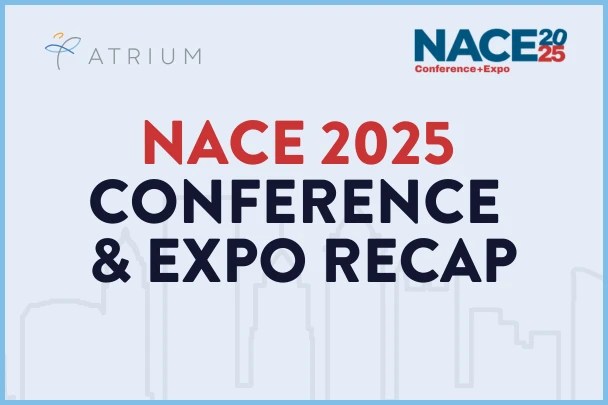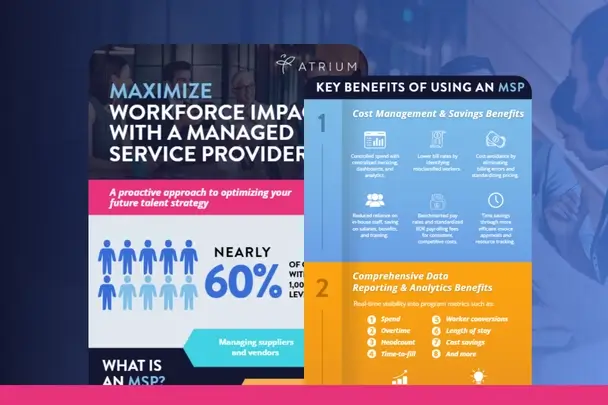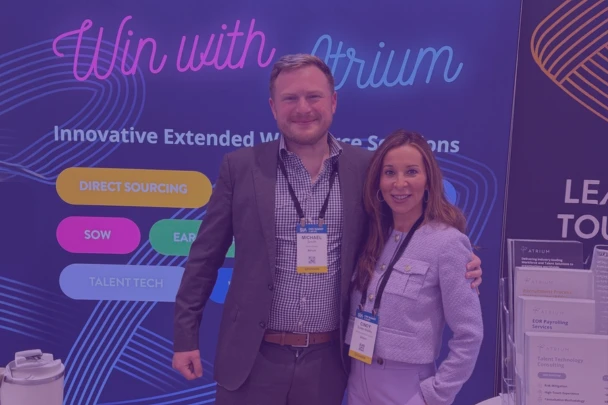Early Career recruitment is evolving rapidly, and the National Association of Colleges and Employers NACE25 conference in Philadelphia showcased just how dynamic this space has become. As industry leaders gathered to tackle the latest challenges and share innovative solutions in career services, Atrium’s team of Early Career experts consistently heard four powerful themes that are on the minds of talent acquisition teams across the United States.
These key takeaways underscore the importance of proactive strategies that engage candidates early, leveraging data and Artificial Intelligence (AI)-driven insights. With increased competition, employers must adapt quickly, utilising technology to streamline candidate assessment and matching. These insights underscore the urgency for organisations to refine their recruitment strategies in order to secure top candidates quickly and effectively.
Read on for a deeper look at each theme.
The ROI of Early Career Programmes Is Under the Microscope
Employers of all sizes are doubling down on measuring cost-per-hire, conversion rates, and quality of hire. This heightened emphasis comes at a time when companies are anticipating only a modest 10% increase in their hiring budgets, while projecting a 7% rise in the number of hires needed.
As a result, employers should prioritise efficiency and leverage data-driven insights to make informed recruitment decisions. Analysing these key performance indicators will optimise recruitment strategies and ensure that investments made in Early Career initiatives yield solid results.
Technology Is Transforming the Candidate and Recruiter Experience
From resume building to interview preparation, over 60% of students are utilising generative AI tools. The integration of AI in recruitment processes has become increasingly important, particularly when hiring Early Career. Platforms like Handshake, RippleMatch, and Abode are changing how students connect with opportunities and how recruiters must adapt.
AI has the potential to revolutionise recruitment by generating cost savings by automating repetitive tasks and improving important metrics, like time-to-hire and quality of hire. This allows organisations to achieve a better ROI in their recruitment efforts.
The Future Workforce Is Diverse, and Gen Z Is Leading the Way
As the most diverse generation to date, Gen Z is reshaping workplace expectations. They prioritise authenticity, inclusivity, and real connections over polished messaging or vague mission statements. This generation seeks internship programmes that allow them to take ownership of their career paths, reflecting a shift from previous generations. Peer-led intern panels, reverse mentorship opportunities, and platforms that facilitate genuine interaction resonate more than traditional branding.
Additionally, Gen Z’s digital fluency and entrepreneurial mindset are valuable assets, providing innovative ideas and insights into emerging trends and consumer expectations. Creating a supportive and challenging work environment aligned with their long-term aspirations is an important part of attracting and retaining Gen Z interns. Companies should evolve their strategies to reflect these values to effectively engage this generation.
Digital Over Physical: Evolving Campus Strategies
Traditional career fairs are declining in ROI, prompting organisations to rethink their approach to campus recruitment. The focus is increasingly shifting toward curated, hybrid sourcing events and intentional outreach backed by tech. In this new landscape, the quality of candidate engagement has become far more significant than sheer volume.
Recruiters are now leveraging data-driven methods and targeted communications to connect with candidates who align closely with their organisational values and needs. This shift enhances the candidate experience, leading to stronger connections that result in better hiring outcomes.
The Future of Early Talent
As Early Career programmes transform with the latest generation, one thing is clear: companies must remain agile and responsive to shifting candidate expectations and broader market demands. From adopting new technologies to reimagining the candidate experience, the themes from NACE25 point to a more personalised, data-driven, and inclusive future for Early Career recruitment. Atrium is proud to partner with companies to build high-impact Early Career programmes that meet the needs of today’s emerging workforce. Connect with us today to explore how we can help you turn these insights into action.





